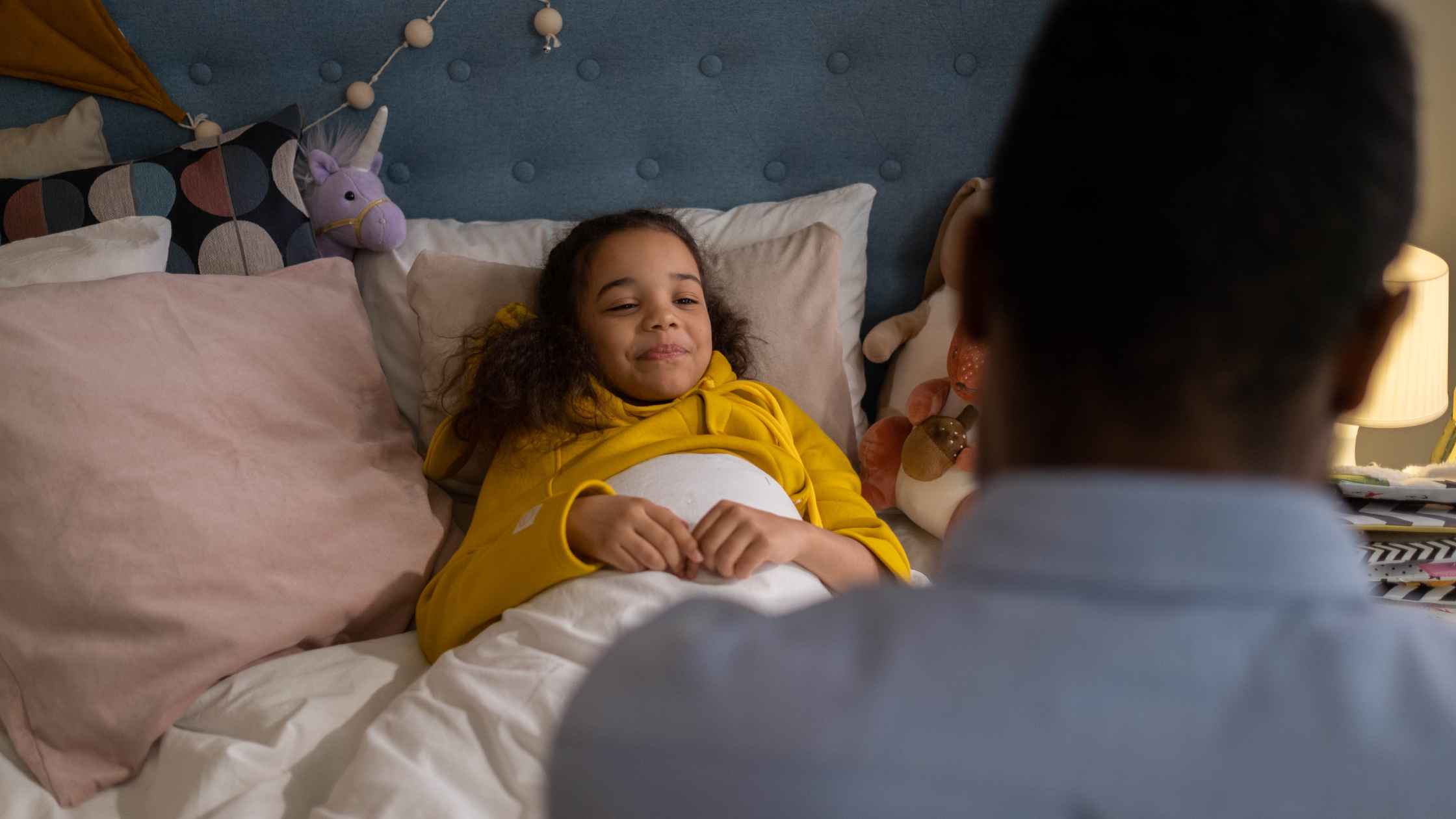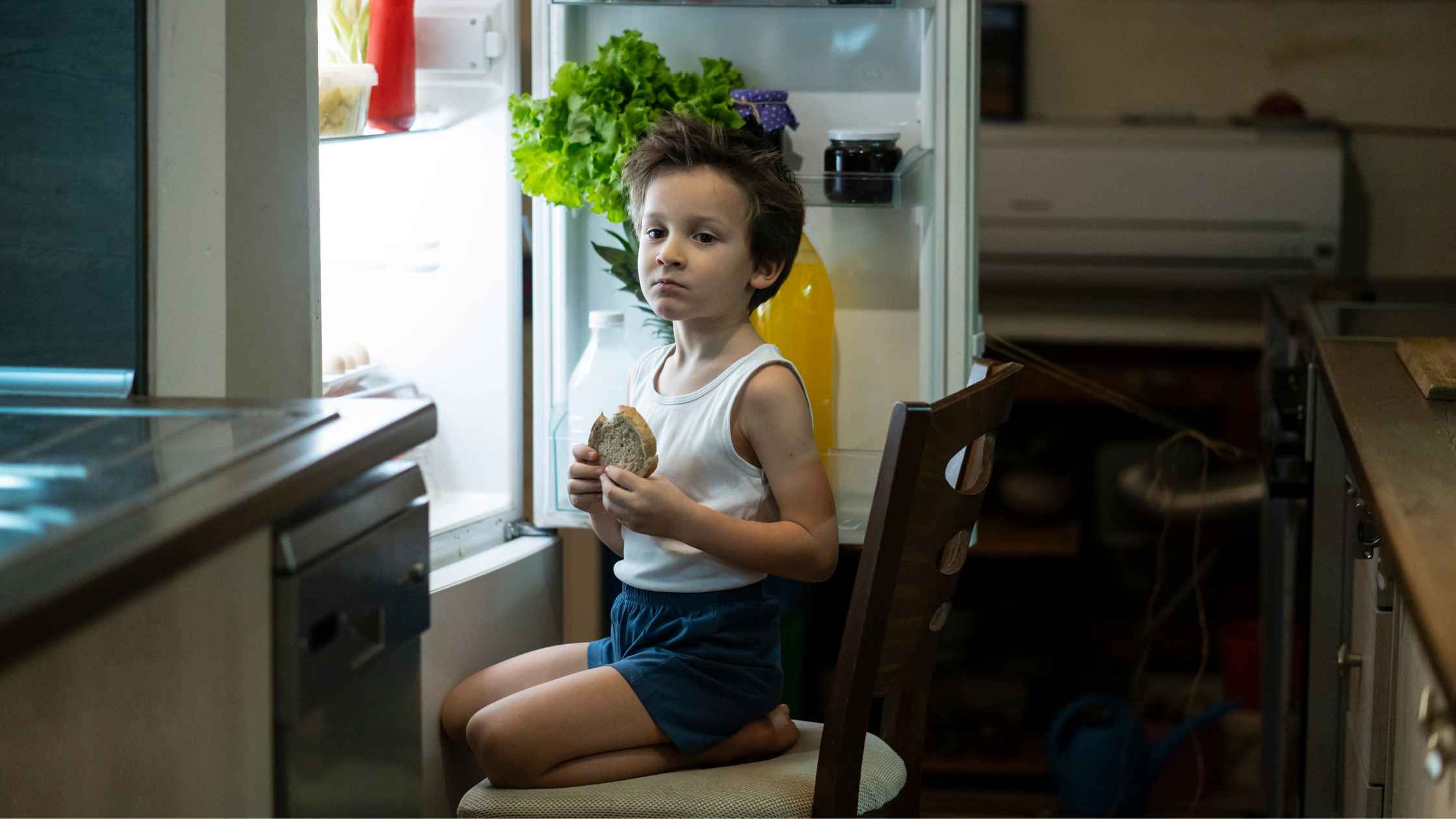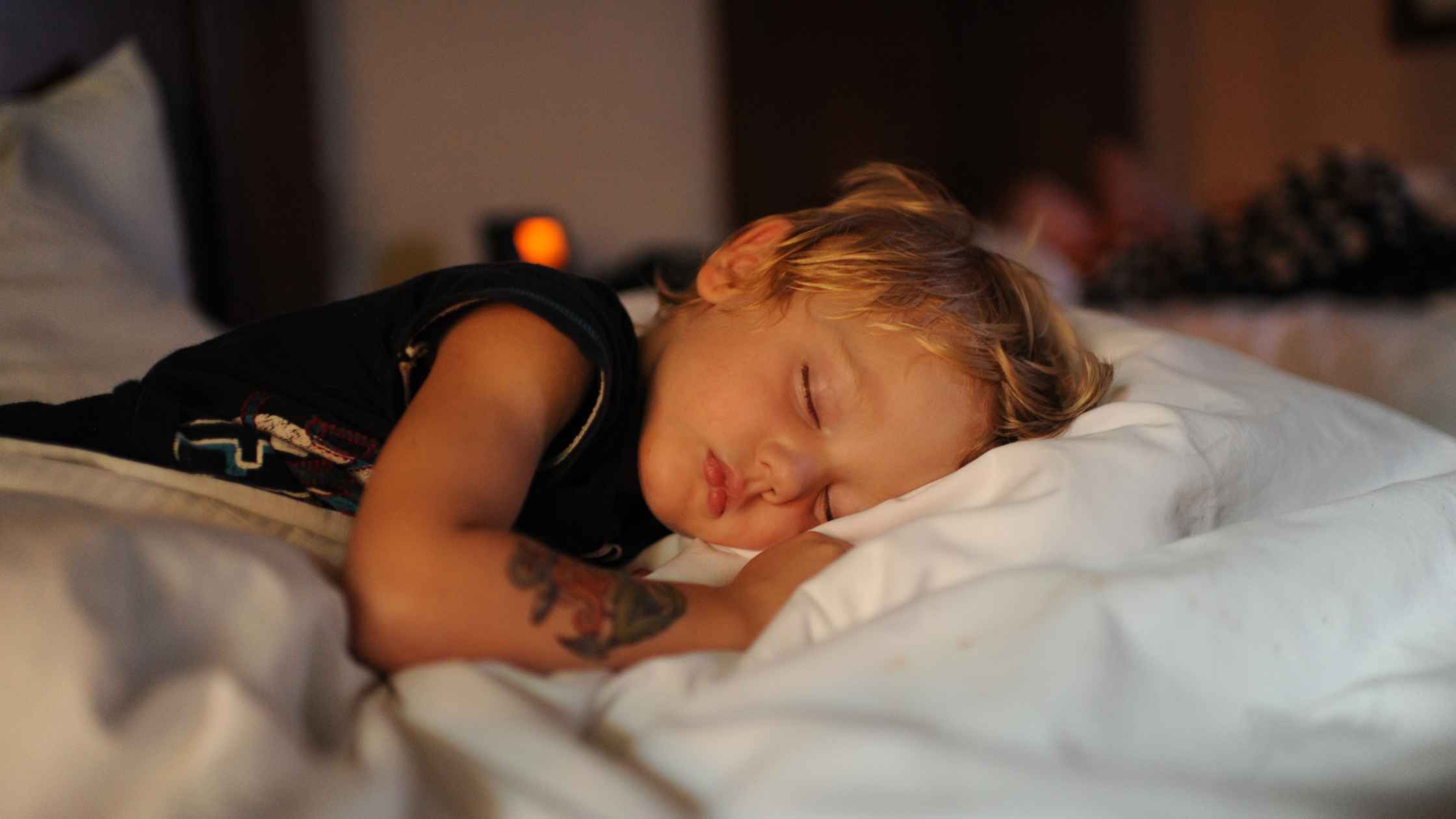As a pediatrician and parent of four children, I know firsthand how challenging it can be to get little ones to go to sleep at night. My two daughters, aged 8 and 17, and my two sons, aged 5 and 13, have all gone through periods of fighting sleep and bedtime.
After years of experience and trying different techniques, I’ve learned what works to get kids of all ages to happily go to bed on time.
In this comprehensive guide, I’ll share all my best tips and tricks to help your children get the restful sleep they need.
Why Sleep is Critical for Children’s Health

Before we dive into how to get your kids to go to bed, it’s important to understand why sufficient, high-quality sleep is so critical for their growth and development. According to research, children who get enough sleep have:
- Better focus, memory, learning and behavior
- Improved immune system functioning
- More energy during the day
- Better moods and emotional regulation
- Lower risk of obesity
The National Sleep Foundation recommends the following nightly sleep ranges:
- Newborns: 14-17 hours
- Infants: 12-15 hours
- Toddlers: 11-14 hours
- Preschoolers: 10-13 hours
- School-age: 9-11 hours
- Teens: 8-10 hours
As you can see, children need a significant amount of sleep, especially when they are young. Now let’s look at some of the top reasons kids resist going to bed and how you can overcome them.
Common Reasons Kids Avoid Bedtime

In my pediatric practice, I’ve heard all kinds of excuses from children about why they can’t go to bed just yet. Here are some of the most common holdups:
- They don’t feel tired. Elementary school kids in particular can get a second wind in the evenings.
- Fear of missing out. Kids worry they’ll miss valuable family time if they go to bed early.
- Bedtime anxieties. Some children have worries about the dark or nightmares.
- Sleep association problems. Kids who rely on specific sleep associations like nursing or rocking have trouble self-soothing.
- Medical issues. Sleep apnea, reflux, eczema and other conditions can disrupt sleep.
- Medications. Some medications like steroids or decongestants can cause insomnia.
- Electronics use. The blue light from phones and tablets delays melatonin release.
As you can imagine, it takes a multi-pronged approach to overcome these obstacles blocking your child’s ability to easily fall asleep. The good news is there are many effective techniques you can try.
Top Tips for Getting Kids to Bed

Over nearly two decades as a pediatrician and parent, I’ve compiled my very best tips and tricks for getting kids of all ages to go to bed without a struggle. Here they are:
Set a Consistent Bedtime
One of the key factors that helps children go to bed is having a regular bedtime that is enforced daily, even during weekends and holidays.
For toddlers and preschoolers, aim for 7-8 pm. For elementary school kids, 8-9 pm is ideal. Older children can have a slightly later bedtime, around 9-10 pm.
Set Up a Soothing Bedtime Routine

A relaxing bedtime routine is the cornerstone of good sleep hygiene for children. Aim to start the routine 60-90 minutes before bedtime.
Activities like a warm bath, spending time reading together, or listening to soft music help cue their bodies that sleep is approaching.
Make the Bedroom Sleep-Friendly
Create an environment optimized for sleep. Use blackout curtains to make sure the room is dark during daylight hours. Set the temperature between 60-75°F.
Consider using a white noise machine to block disruptive household sounds.
Make sure the mattress and bedding are comfortable. Remove electronics and TVs from the bedroom.
Address Bedtime Fears and Anxieties
If your child seems anxious about going to bed, speak with them during the day to identify any worries about the dark, nightmares, separation anxiety or other issues.
Problem-solve ways to help them feel safe, like using a nightlight, “monster spray,” or letting them sleep with a special stuffed animal.
Enforce a Media Curfew
Studies show screen time before bed can significantly disrupt sleep.
Enforce a “media curfew” 60-90 minutes before bedtime to avoid the stimulating effects of electronics. Switch the WiFi off once the curfew starts so there’s no temptation.
Make Sleep a Family Priority

When parents make sleep a family priority, children are more likely to buy in as well.
Set a good example by having a consistent bedtime routine yourself and shutting off your own devices early.
Let your kids know sleep helps them play, learn and grow.
Add Daytime Physical Activity
Making sure your child gets regular physical activity and playtime helps promote better sleep at night.
Shoot for at least 60 minutes of exercise daily, and ideally some of it outdoors for natural daylight exposure.
Watch for Signs of Overtiredness
Putting overtired children to bed often backfires, leading to meltdowns. Learn to spot the signs of overtiredness like fussiness, crying, hyperactivity or zoning out.
When you see those cues, start the bedtime routine immediately.
Limit Napping Past Age 3
While napping is important for infants and toddlers, extended daytime sleep can interfere with nighttime rest.
Limit naps to 1-2 hours, and phase them out entirely between ages 3-5 to promote better nighttime sleep.
Avoid Late Sugary Snacks and Caffeine

Consuming sugars, caffeinated beverages and other stimulants close to bedtime will make it harder for children to fall asleep. Have them finish eating dinner and treats at least two hours before bed.
Use Positive Reinforcement
Praise and reward your child when they go to bed without resistance.
A reward chart, extra story time or a special privilege the next day provides positive motivation to keep cooperating at bedtime.
Consider Melatonin Supplementation
For chronic insomnia, consult your pediatrician about whether a melatonin supplement could help.
Most experts consider melatonin safe for short-term use in children, but more research is still needed on long-term use.
See Your Pediatrician if Needed
If your child’s sleep problems persist despite your best efforts, talk to your pediatrician. An underlying physical or mental health issue could be contributing to their insomnia.
In some cases, a sleep study or seeing a pediatric sleep specialist may be warranted.
Special Considerations by Age

While the tips above apply broadly to children of all ages, there are some additional points to consider specific to infants, toddlers, and teens.
Infants:
- Stick to early bedtimes between 6-8 pm. Their biological clock favors sleep in the evening.
- Let them wake to feed during the night. By 6 months they should naturally start sleeping longer stretches.
- Use white noise and swaddling to help soothe them to sleep.
- Avoid sleep crutches like rocking or nursing to sleep, which become hard habits to break later on.
Toddlers:
- Use a visual bedtime schedule detailing the routine with pictures. Kids love routine.
- Provide comfort items like blankets or stuffed animals to ease separation anxiety.
- Use baby gates, door knob covers and monitors to keep them safely in their room overnight.
- Set firm limits on stalling tactics like extra snacks or drinks.
Teens:
- Set a “lights out” time to help them disengage from electronics and social media.
- Keep mornings bright to reinforce their natural melatonin cycle.
- Limit caffeine intake, especially after lunchtime.
- Prioritize sleep over early school start times when possible. Most teens are biologically wired to go to bed later.
Bedtime Success Tips for Parents

As parents, getting our kids to go happily to bed can feel like an endless battle. However, having the right mindset and techniques helps turn bedtime into a peaceful experience the whole family enjoys.
Here are my top tips for parents on achieving bedtime success:
- Stay calm but firm. Your calm confidence reassures your child it’s time to sleep.
- Pick your battles. Focus on what matters like the schedule, not endless negotiations.
- Allow time to wind down. Make bedtime relaxing versus rushed and stressful.
- Discuss concerns and problems earlier in the day, not right at bedtime when emotions run high.
- Give clear warnings as bedtime approaches to set expectations. For young kids, consider using visual timer boards.
- Resist repeatedly returning to soothe them or answer requests for water. Set limits and help them learn to self-soothe instead.
- Keep bedtime consistent on weekends and vacations. Avoid sabotaging your hard work during the week.
- Practice empathy and patience. Some kids genuinely struggle with anxiety about sleep. Work with them.
- Celebrate and reward cooperation rather than punishing resistance.
- Seek support from your partner, family members and other parents. We all face sleep struggles!




